
Welcome to Thailandblog.nl
With 275.000 visits per month, Thailandblog is the largest Thailand community in the Netherlands and Belgium.
Sign up for our free e-mail newsletter and stay informed!
Newsletter
Language setting
Rate Thai Baht
Sponsor
Latest comments
- Berbod: Beautiful story Lieven and recognizable in many ways. In recent years I have been drinking coffee from the Boloven plateau in the South
- Jos Verbrugge: Dear KeesP, Would it be possible to provide the details of the visa office in Chiang Mai? Thanks in advance
- Rudolf: The distance from Khon Kaen to Udon Thani is 113 km. You don't need an HSL or airplane for that. You can do that with one
- Chris: It is a matter of long-term thinking: - petrol prices will undoubtedly continue to rise in the next 20 to
- Atlas van Puffelen: The isan is like a beautiful young woman, Clouseau, There she goes, sang a similar insight. Fantastic to walk next to it, m
- Chris: Rich elite? And if that train ticket costs the same or less than a plane ticket (because of all the extra environmental taxes).
- Eric Kuypers: Immigration and customs have to go in somewhere and get out again later, so I expect Nongkhai and Thanaleng at the stopping points. There is
- Freddy: Then unfortunately the salespeople who make a train journey so much fun will be over..
- Rob V: That's why I actually only wanted to keep Khon Kaen on my beermat, provided the train does at least 300 km to get a full stop.
- RichardJ: Sorry, Erik. You cannot dismiss a critical attitude towards these types of mega projects with a catch-all such as “setting up...
- Rudolf: The poorest are indeed coming out of the valley very slowly – at least in the village where I live. And the money usually comes from
- Sander: In Thailand too, forces will eventually come into play that will say 'take the train instead of the plane'. So oo
- Rob V: Will Lieven, as a coffee snob and with a nod to his surname, be tempted by a cup of coffee with beans that have been roasted first?
- Johnny B.G: The easiest way is of course to just shoot, but then you get the whole community all over you and in times of social m
- Be the cook: Hello Henk, It is in Jomtien Beach. You just have to ask for Dvalee hotel. From there to the right it is about a hundred. You should
Sponsor
Bangkok again
Menu
DOSSIERS
Learning objectives and topics
- Background
- Activities
- Advertorial
- Agenda
- Tax question
- Belgium question
- Sights
- Bizarre
- Buddhism
- Book reviews
- Column
- Corona crisis
- The Culture
- Diary
- Dating
- The week of
- Dossier
- To dive
- Economy
- A day in the life of…..
- Islands
- Food and drink
- Events and festivals
- Balloon Festival
- Bo Sang Umbrella Festival
- Buffalo races
- Chiang Mai Flower Festival
- Chinese New Year
- Full Moon Party
- Christmas
- Lotus Festival – Rub Bua
- Loy Krathong
- Naga Fireball Festival
- New Years Eve celebration
- Phi ta khon
- Phuket Vegetarian Festival
- Rocket festival – Bun Bang Fai
- Songkran – Thai New Year
- Fireworks Festival Pattaya
- Expats and retirees
- state pension
- Car insurance
- Banking
- Tax in the Netherlands
- Thailand tax
- Belgian Embassy
- Belgian tax authorities
- Proof of life
- DigiD
- emigrate
- To rent a house
- Buy a house
- In memoriam
- Income statement
- King's day
- Cost of living
- Dutch embassy
- Dutch government
- Dutch Association
- News
- Passing away
- Passport
- Retirement
- Drivers license
- Distributions
- Elections
- Insurance in general
- Visa
- work
- Hospital
- Health insurance
- Flora and fauna
- Photo of the week
- Gadgets
- Money and finance
- History
- Health
- Charities
- Hotels
- Looking at houses
- Isaan
- Khan Peter
- Koh Mook
- King Bhumibol
- Living in Thailand
- Reader Submission
- Reader call
- Reader tips
- Reader question
- Society
- marketplace
- Medical tourism
- Environment
- Nightlife
- News from the Netherlands and Belgium
- News from Thailand
- Entrepreneurs and companies
- Education
- Research
- Discover Thailand
- Opinions
- Remarkable
- Calls
- Floods 2011
- Floods 2012
- Floods 2013
- Floods 2014
- Winter prices
- Politics
- Poll
- Travel stories
- Travel
- Organizations
- Shopping
- Social media
- Spa & wellness
- Sport
- Cities
- Position of the week
- The beach
- Language
- For sale
- TEV procedure
- Thailand in general
- Thailand with children
- thai tips
- Thai massage
- Tourism
- Going out
- Currency – Thai Baht
- From the editors
- Real estate law; and
- Traffic and transport
- Visa Short Stay
- Long stay visa
- Visa question
- Flight tickets
- Question of the week
- Weather and climate
Sponsor
Disclaimer translations
Thailandblog uses machine translations in multiple languages. Use of translated information is at your own risk. We are not responsible for errors in translations.
Read our full here disclaimer.
Royalty
© Copyright Thailandblog 2024. All rights reserved. Unless stated otherwise, all rights to information (text, image, sound, video, etc.) that you find on this site rest with Thailandblog.nl and its authors (bloggers).
Whole or partial takeover, placement on other sites, reproduction in any other way and/or commercial use of this information is not permitted, unless express written permission has been granted by Thailandblog.
Linking and referring to the pages on this website is permitted.
Home » Photo of the week » Photo of the day » Thailand photo of the day: Waste separation and the plastic problem
Thailand photo of the day: Waste separation and the plastic problem
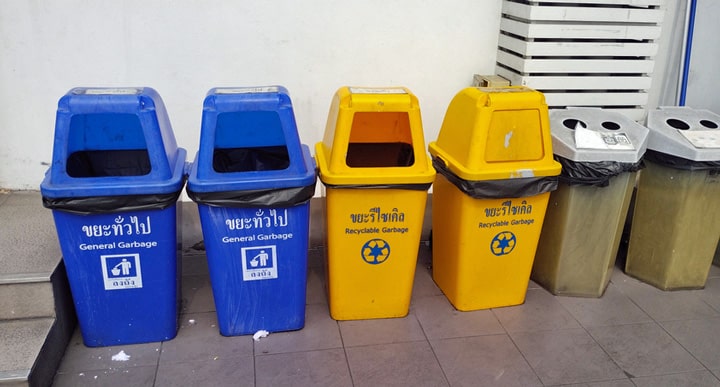
(sarawuth wannasathit / Shutterstock.com)
Thais are addicted to disposable plastic. Every year alone, 70 billion plastic bags are consumed. Along with China, Indonesia, the Philippines and Vietnam, Thailand is one of five Asian countries responsible for more than half of the eight million tons of plastic waste that ends up in the oceans each year, according to the Ocean Conservancy organization.
On January 1, 2020, Thailand launched its anti-plastic campaign, involving 75 department stores, convenience stores and other businesses with more than 24.500 outlets across the country. Retail in Thailand wants to help reduce the consumption of plastic waste and plastic bags.
You can also see more and more initiatives to separate (plastic) waste in the streets of Thailand. These are small steps that should contribute to doing something about plastic pollution.
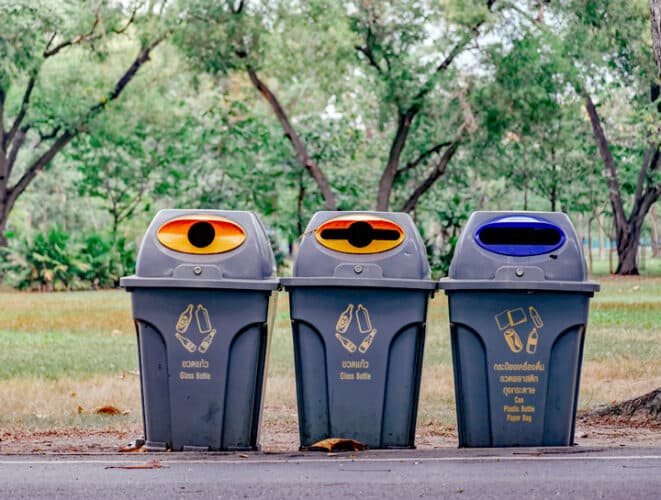
A park in Bangkok (Sorakrai Tangnoi / Shutterstock.com)
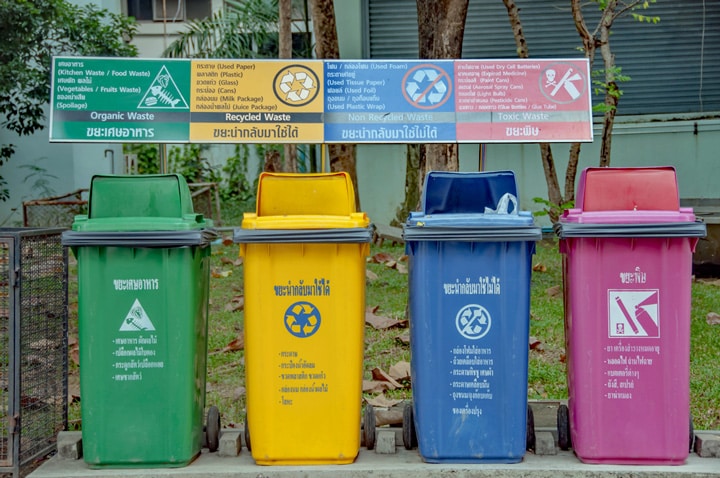
(Ladapha Ngaosangtam / Shutterstock.com)
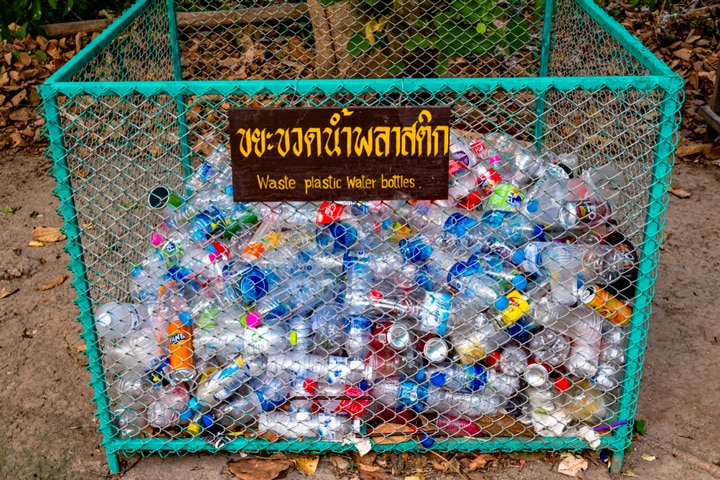
(rivermartin/Shutterstock.com)
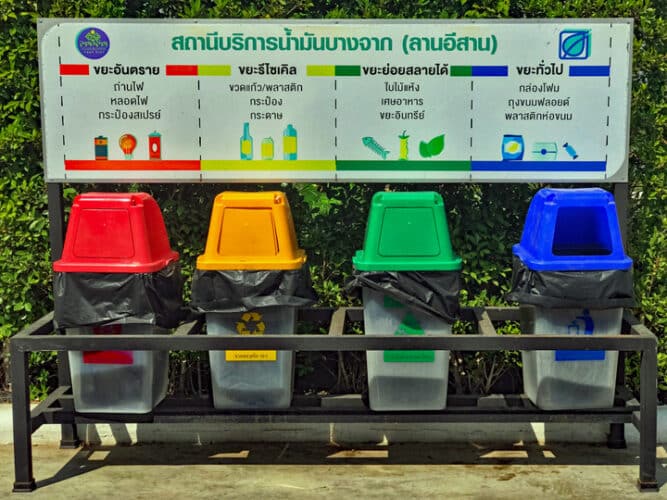
(Aimdeemeesuk / Shutterstock.com)
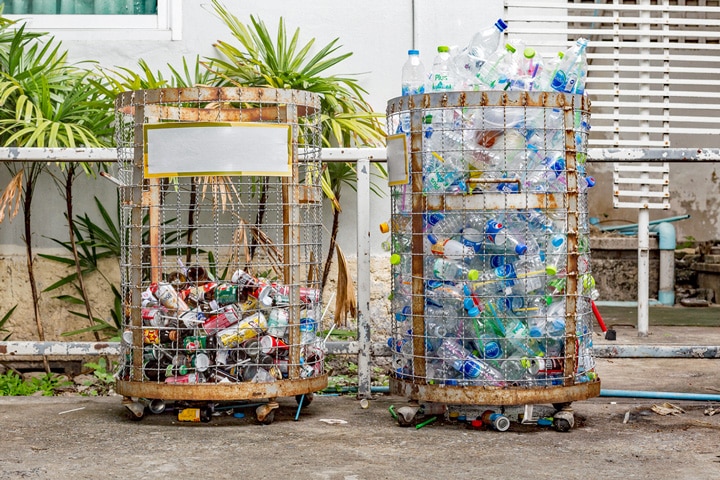
(AOME1812 / Shutterstock.com)
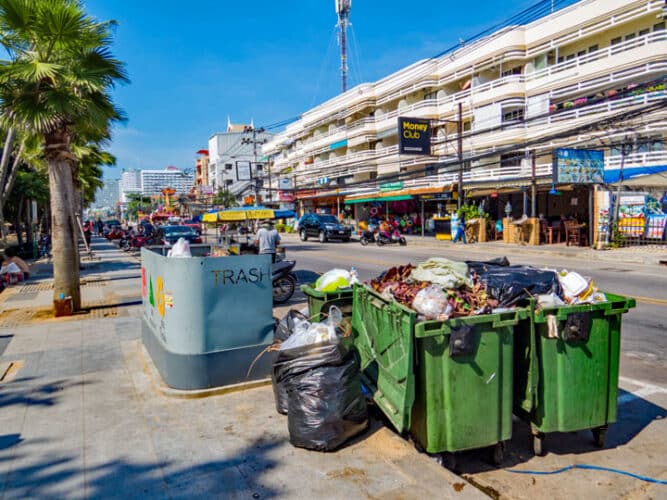
(Diego Fiore / Shutterstock.com)

But change is coming in some countries in Asia!!! Boyan Slat ensures that everything is extracted from the rivers.
Do you not see any attention for this young man from the Netherlands???
https://www.youtube.com/watch?v=KyZArQMFhQ4
Then you should do your homework a little better;
https://www.thailandblog.nl/achtergrond/nederlandse-uitvinder-boyan-slat-van-the-ocean-cleanup-gaat-aan-de-slag-in-thailand/
https://www.thailandblog.nl/nieuws-uit-thailand/nederlandse-organisatie-the-ocean-cleanup-helpt-thailand-met-rivierafval/
Sorry!!!! I hurt my wrist doing martial arts and couldn't do my homework.55555
Okay, get well with your wrist.
Boyan Slat is trying to limit the plastic flow towards the open sea.
But as long as the dictators don't get enough under the table, he gets little cooperation.
Unfortunately.
From what I understand is that every year 5 million tons (number I had come across) of plastic is dumped in the oceans and then others go fishing it out again. Logical right?!
I understood that there are 5 islands of plastic the size of Texas floating around in the oceans, mainly the Pacific Ocean, where it is concentrated by currents.
The currents are also influenced by these masses and therefore the entire ecosystem.
Then I wonder, what are we doing. And more, who are the ones who dump it? 5000000 TON is not really a bit.
Documentaries from China, which imported old plastic and used poor Chinese to separate, if all goes well, they have stopped. Also in Thailand and more countries.
Thailand now has plastic processing based on the pyrolysis of plastic, so must now have "raw material". A fuel (?) could be extracted in this way. Has yet to prove profitable, has been here in TB by the way. Actually originated because ordinary people did this, see the many YT videos.
PET can be recycled. In the Netherlands we have/had such a factory, but we have to fight hard against new PET bottles, they are actually cheaper. And there you go, the manufacturer uses the new one. Well, even if there is a difference of 1 cent/bottle, that will yield a profit of 10000 euros for the PET user on a million bottles.
Then break it off? There seem to be bacteria, enzymes that break it down. Consequence more CO2.
Or also pyrolysis, but that seems to involve quite a few snags. However, technology is moving forward, so maybe it's doable now.
India, I thought, is now making “bricks” from recycled polyethylene, ok good.
A new problem pops up, clothes. They make an absurd surplus of clothing. Surplus or resend clothing is now dumped in eg Chile in deserted regions. Brand new clothing by the ton. Saw that pack away 3 weeks ago on the internet. Africa would also be a popular place to dump. Strange, not yet in the sea?
At one point we see a lion in an outfit hopping around, just like many nautical animals are equipped with plastic parts or are even filled with plastic.
There is even micro plastic, as the name says very small, which you can get in drinks that you drink every day.
What happens to the small organism in the sea, which provides a large part of our oxygen production? When these are “fed” by micro plastic? Yes, not only the trees take care of it.
Did you know that seagulls forage at glass processing companies? Broken jars with, for example, some peanut butter. They eat it glass and all, so die. However, they are protected.
They are not my favorite birds, but don't wish them a terrible death. That's why I now wash all my empty jars before it goes to the bottle bank. That way you always learn from a documentary.
That's how I ended up in a documentary that investigated how far nautical life influences their movements, ocean currents in particular. At first I thought, yes, but a little later, yes, there is a kernel of truth in that.
And the currents are just as important as the air you inhale.
It belongs to the earth ecosystem.
Anyway, let's move on and waste our habitat. We are now launching rockets into space one after the other, to give a millionaire a glimpse into space.
Well, why would you think about CO2 emissions? If the Netherlands does not do the same, they will fill the country with energy-guzzling data centers, 184 in total already. Farmers gone, data center replaced.
Energy/environmental agreement, of course, not achieved.
Perhaps they should better place the data centers in the Sahara, plenty of space and enough sun for solar power.
SHELL has a process for making fuel from CO2, of which there is plenty. H2 was and still is the problem, as there is now a squabble over who owns H2 producing
factories (windmills and related installations) government or SHELL, water or the drip?
For now, SHELL has left, yes, head office, but don't forget that they sell everything in the Netherlands, their entire installations. Rumor had it that they were actually thinking about it back in 2000.